As both Houses of the Parliament clear the National Forensic University Bill, experts from the city say it will strengthen the criminal justice system
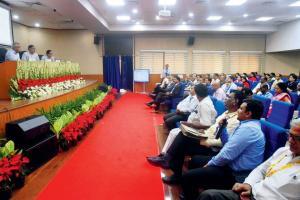
A meeting was held by those who represented Maharashtra before the bill was sent to the Lok Sabha
With an aim to give importance to Forensic Science, the Centre has finally approved the much-awaited National Forensic University Bill at both the houses, thereby uplifting Gujarat Forensic Science University, from State University to National University, which will cater to students from not only India but Globally.
The National Forensic Science University Bill 2020 establishes National Forensic Science University as an institute of national importance in lines with DRDO, BARC and ISRO. The proposed university would facilitate and promote studies and research and help achieve excellence in the field of forensic science along with applied behavioural science studies, law, criminology and other allied areas, explained Professor Amol Deshmukh, Head of the Department, Institute of Forensic Science, Mumbai, who is also technical advisor to government of Maharashtra.
ADVERTISEMENT
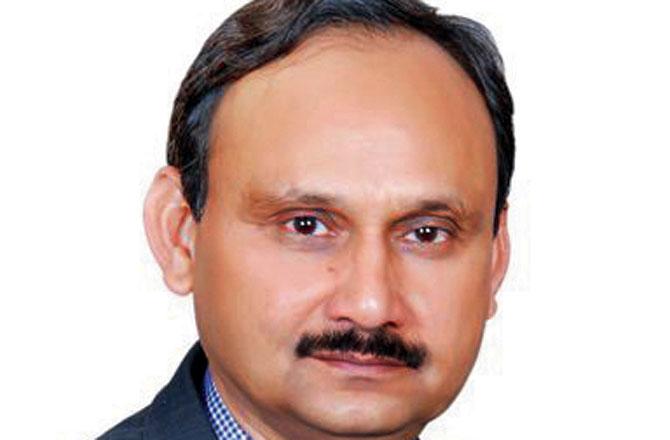
Dr Arvind Tiwari, professor and dean, School of Law, Rights and Constitutional Governance, TISS, Mumbai
Deshmukh added, "The university will grant degrees and other academic distinctions and will be open to all persons irrespective of gender, race, caste, creed, disability, domicile, ethnicity, social or economic background. And in the first phase the university would expand its presence by setting up a forensic centre of excellence in New Delhi, followed with setting up new centres in phased manner in Bengaluru, Pune, Kolkatta and Tripur"
Deshmuk added, "The present Director General of Police (Legal and Technical) Hemant Nagrale, Director of FSL, Kalina, Dr Krishna Kulkarni and I myself, played a pivotal role, and represented the state of Maharashtra, which helped to get a centre shortlisted for Pune. The centre would start its operation within next couple of years, which will focus on crime dynamics of the state by giving special training focusing specially on the role of cybercrime, financial crime and economic security."
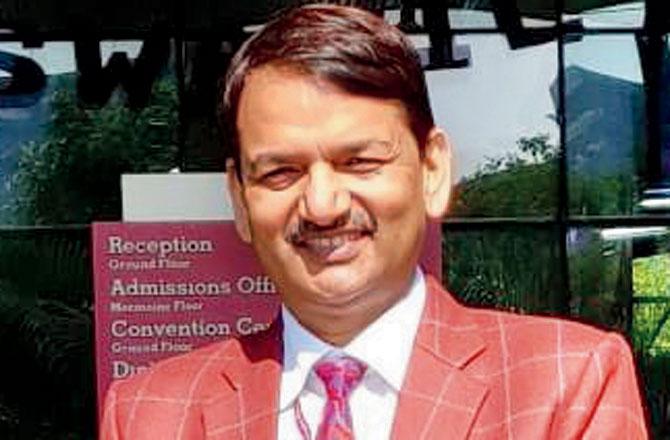
Dr G K Goswami, joint director, CBI
Dr Jayant Vyas, Director General, Gujarat Forensic Sciences University said, "We are one of its kind Forensic University across the World and at present we have 150 international students, at our campus, enrolled for various forensic courses. We have already trained 2300 police officers, from across 66 countries, since our formation in the year 2009, making this a unique centre for enhancement of knowledge worldwide. And with getting the recognition of National University, we have opened up the avenues further."
"We are coming up with our first centre at National Institute of Criminology and Forensic Science, New Delhi, where we will set up a full-fledged centre for forensic science. Also similar request have come from government of Tripura, where our second centre is likely to come up, soon," explained Dr Vyas.
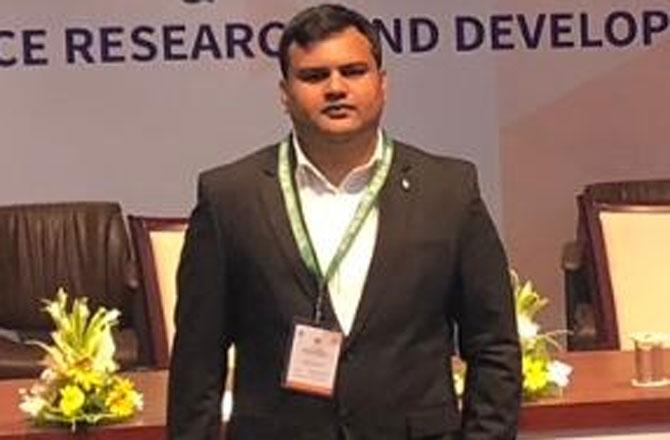
Amol Deshmukh
Dr Vyas, added, "Our University is capable and we have world class academicians who is keen to impart their knowledge and skills with various law enforcing agencies, and young students, who are keen to make their career in forensics science. Also, forensic today is playing a key role in providing technical support to various law enforcing agencies, be it biological, cyber forensic analysis or even behavioural sciences, in the larger interest of criminal justice system. We will be soon work across spectrums in the larger interest of national security" explained Dr Vyas.
Dr Arvind Tiwari, Professor and Dean School of Law, Rights and Constitutional Governance, TISS, Mumbai, said, "The approval of National Forensic Unversity Bill, at both Lokhsaba and Rajyasaba is a welcome move and a bold decision by the Government of India, thereby giving a national recognition to both Gujarat Forensic Science University and Raksha University, both in Ahmedabad, Gujarat, which was earlier a State recognised university and National Unisersity. We must understand that forensic science and forensic medicine, are an integral part of the criminal justice system, and they cannot be ignored, by the law enforcing agencies, especially, when it comes to crime scene investigation."
"Moreover, forensic science, is not limited to analysis of evidences in criminal case, but with rise in cyber offences, white collar and economic crimes, forensic science, will be playing a pivotal role, and having such an university across the states of India, will only give a platform to the young brains, to make a professional career in forensic science and will also be a platform for training the police and law enforcing agencies, including judicial officers and lawyers, to understand forensic science in larger perspective of criminal justice system," said Dr Tiwari.
He concluded stating, "Today eighty percent of witnesses turn hostile during the trial, and that directly impacts the conviction rate, whereas we must understand man may 'lie' but scientific evidences never."
Dr G K Goswami, Joint Director, Central Bureau of Investigation, (CBI), who is also Hon. Professor at GFS University, said, "The Gujarat Forensic Science University has now been officially designated as the 'National Forensic Science University" which is already known in Asia and Globally for bridging together professional police and domain officers with academicians who are forensic experts in various streams of forensic science"
"Also, the national university will be playing a key role as apex body in the academia, and professionals for ensuring "fair investigation" by using the tools of forensic science. This paradigm shift, will also train the aspiring professionals in using scientific tamper less collection of evidences, which is necessary for corroboration in administration of justice," said Dr Goswami.
Dr M S Rao, retired Chief Forensic Scientist, Ministry of Home Affairs, Government of India, "It is a good move that the government of India, had given a due recognition to Gujarat Forensic Science University as National University. The need of the hour is to have similar centres for enhancing forensic knowledge, across other states in India. It will be a matter of pride, when we would have our forensic centres in Mizoram and Nagaland. Also slowly and gradually the importance of forensic science is being accepted and this will strength the criminal justice system in our country, in years to come."
Forensic Medicine and Forensic Science should be strengthened for justice
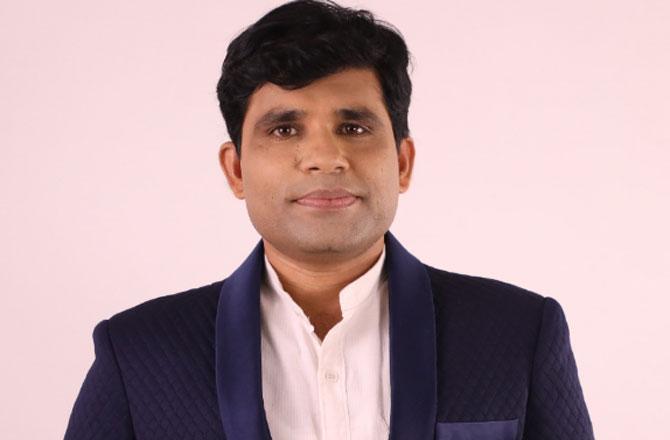
Dr Indrajit Khandekar
Dr Indrajit Khandekar, Professor of Forensic Medicine and Toxicology, Mahatma Gandhi Institute of Medical Sciences, Sevagram-Wardha said, "In my view, the police investigative wing, forensic medicine and forensic science, there wings, simultaneously need to improve to get the desired outcome, because the police machinery and forensic surgeons, collect samples and forensic scientists analysis the collected samples tagged as "evidence", but if the collection of sample is not improvised then even the best of the best forensic scientists cannot extract evidences from the samples submitted. The fact is in most cases samples preserved by police and forensic surgeon, results have come inconclusive result, as sample is not suitable for analysis. This happen due to collection of perseveration of samples, which need proper training."
Also another problem is that we do not have any guidelines to guide the setting up of autopsy centres, and moreover there is no guidelines for MBBS doctors, who are ideally allowed to do the autopsy. In foreign countries they have set rules and guidelines in setting up autopsy centres and the same are accredited by their national agencies, which helps in maintaining unform, and high standards of autopsy centres. Unfortunately, in India, we do not have any such thing, said Dr Khandekar.
He added, "In United Kingdom even today the medical examiner inquest procedure is followed, which means the crime scene is protected, till police, and forensic expert visit the crime scene. In India, we have police inquest, and by the time the police visit the crime scene, due to ignorance of people, the crime scene is disturbed and tampered, thereby destroying crucial forensic evidence."
Dr Khandekar concluded saying, "Therefore, while setting up forensic universities is a good move, but it won't do any miracles, unless all basic components and agencies working within the ambit of criminal justice systems are improvised and brought together with ultimate goal of preserving, collection, and analysing of crucial forensic evidence, which will have direct impact on the administration of justice."
Keep scrolling to read more news
Catch up on all the latest Mumbai news, crime news, current affairs, and a complete guide from food to things to do and events across Mumbai. Also download the new mid-day Android and iOS apps to get latest updates.
Mid-Day is now on Telegram. Click here to join our channel (@middayinfomedialtd) and stay updated with the latest news
 Subscribe today by clicking the link and stay updated with the latest news!" Click here!
Subscribe today by clicking the link and stay updated with the latest news!" Click here!







